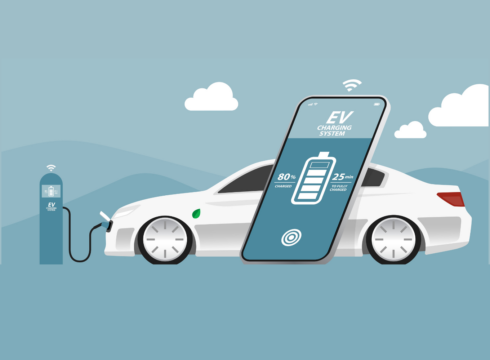SUMMARY
India's heavy reliance on Chinese imports for EV components, particularly batteries, hinders the widespread adoption of electric vehicles
The regulation of the EV supply chain is a necessary step for the development of the EV sector, and it requires strategic planning and investment in key areas
It is important to understand the key challenges faced by the industry and discuss potential solutions to pave the way for a robust and self-reliant EV supply chain
Inc42 Daily Brief
Stay Ahead With Daily News & Analysis on India’s Tech & Startup Economy
As India aims to accelerate the adoption of electric vehicles (EVs) and transition towards a sustainable future, there are several challenges that need to be addressed to ensure a smooth and efficient supply chain for EV components.
The regulation of the EV supply chain is a necessary step for the development of the EV sector, and it requires strategic planning and investment in key areas. It is important to understand the key challenges faced by the industry and discuss potential solutions to pave the way for a robust and self-reliant EV supply chain.
Overcoming Import Dependence
One of the primary challenges hindering the widespread adoption of electric vehicles in India is the heavy reliance on Chinese imports for batteries and other essential components. Batteries, in particular, contribute significantly to the overall cost of an electric vehicle, making them less financially viable compared to traditional internal combustion engine vehicles.
To address this issue, the Indian government needs to proactively invest in battery technology research and development. Anticipating and investing in upcoming trends in battery technology will help India keep pace with global advancements and reduce its dependence on imports.
Moreover, India must explore alternatives to secure essential raw materials like lithium, which is currently heavily imported from China. The rising demand for these metals, coupled with a projected shortage, necessitates the localisation of production.
Adapting To Changing Battery Designs
The landscape of electric vehicle battery technology is evolving rapidly, with continuous advancements and improvements. However, this poses challenges for battery manufacturing, including the selection of cells, busbar metals, and the design of battery packs and modules.
To ensure the seamless integration of new technologies, it is essential to invest in assembly lines that can adapt to evolving requirements while providing prompt service and support.
Imported machinery from China has created significant barriers in terms of service and support, causing disruptions in the industry. Overcoming these challenges requires exploring alternative solutions and maintaining the smooth operation of assembly lines to facilitate the incorporation of evolving EV battery technologies. Adhering to the recently introduced AIS 156 standards, which emphasise traceability, data tracking, analytics and process security, is crucial for ensuring the safety and performance of electric vehicle batteries.
Designing Batteries For Indian Weather
India’s diverse environmental conditions pose a unique challenge for battery manufacturing. Unlike other countries, India experiences a wide range of temperatures, humidity levels and road conditions. Electric vehicle batteries must be resilient enough to withstand these challenging conditions and ensure optimal performance and safety.
Indian manufacturers need to consider factors such as road vibrations, extreme temperatures, high humidity, heavy rainfall, floods and dust when designing and manufacturing batteries. Extensive on-road durability testing over an extended period is necessary to ensure batteries can perform well under real-world conditions. Implementing a smart battery management system (BMS) becomes imperative to regulate external circumstances and ensure optimal battery safety and performance.
Addressing Challenges Due To Import Duties
Import duties on EV components pose challenges such as increased vehicle costs, limited model availability, disruptions in the supply chain and slower technology transfer.
These challenges hinder the affordability, variety and growth of EVs in the market, impacting consumer adoption, domestic manufacturing capabilities and overall progress towards sustainable electric mobility. To overcome these hurdles, it is crucial to reassess import duties and consider alternative strategies that foster a favourable environment for the growth of the EV industry.
Strengthening The Supply Chain & Cost Innovation
To achieve self-reliance in the EV sector, original equipment manufacturers (OEMs) should invest more in research and development and focus on cost innovation while meeting the expectations of Indian customers. OEMs need to have control over critical components’ design and customisation to meet the demands of the Indian market in terms of range, speed and ride comfort.
Efforts should be made to establish a strong supply chain by procuring indigenous raw materials, reducing costs and improving quality. By ensuring total control over the supply chain, EVs can become safer, costs can be decreased and scale-up can be achieved faster.
The government, along with industry stakeholders, should collaborate to develop strategic plans and allocate resources to create a self-reliant and sustainable EV supply chain. By doing so, India can drive the transition towards electric mobility and achieve its vision of a cleaner and greener future.
Note: We at Inc42 take our ethics very seriously. More information about it can be found here.


